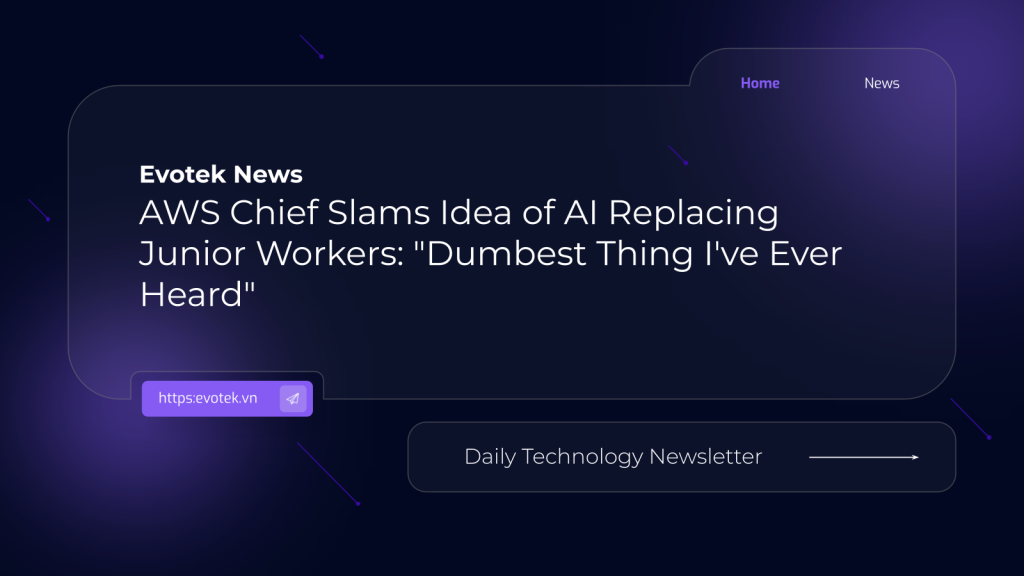Amazon Web Services (AWS) CEO Matt Garman has strongly condemned the notion that artificial intelligence (AI) should replace entry-level employees, labeling it “the dumbest thing I’ve ever heard.” Speaking with AI investor Matthew Berman, Garman expressed dismay at business leaders who believe AI tools can effectively substitute their junior workforce.
Garman’s emphatic statement stems from a pragmatic view of talent development and operational efficiency. He highlighted that junior staff are “probably the least expensive employees you have” and are often the most adept and engaged with AI tools. His primary concern lies with the long-term implications:
“How’s that going to work when ten years in the future you have no one that has learned anything?” Garman questioned. He firmly advocates for continued hiring of recent graduates, stressing the importance of teaching them foundational skills in software development, problem decomposition, and critical thinking. AI, particularly tools like AWS’s Kiro AI-assisted coding tool, should serve as an educational aid and accelerator, not a replacement for human learning and growth.
Rethinking AI’s Value: Beyond Lines of Code
Beyond staffing strategies, Garman also challenged conventional metrics for measuring AI’s success. He dismissed the idea of evaluating AI’s contribution based on the percentage of code it generates within an organization, calling it a “silly metric.” While AI can indeed produce “infinitely more lines of code,” Garman emphasized that quantity does not equate to quality.
“Often times fewer lines of code is way better than more lines of code,” he observed, questioning the obsession with this particular benchmark. Despite this critique, he confirmed that AI tools are widely adopted within AWS, with over 80 percent of its developers using AI in various capacities. This includes writing unit tests, generating documentation, assisting with code creation, and facilitating “agentic workflows” where developers collaborate directly with AI agents. Garman noted a consistent weekly increase in AI tool usage among AWS developers.
Essential Skills for the AI-Driven Future
In an era of accelerating technological advancement, Garman offered crucial career advice for individuals entering the workforce. He argued against focusing on narrowly defined skills, which may quickly become obsolete. Instead, he urged for an emphasis on timeless capabilities:
- Independent Thinking: The ability to form one’s own conclusions and ideas.
- Critical Reasoning: Developing robust problem-solving approaches.
- Creativity: Fostering innovative solutions and perspectives.
- Learning Mindset: Cultivating a continuous desire and capacity to acquire new knowledge and adapt.
Garman believes that because technological shifts are so rapid, expecting a 30-year career to be sustained by specific, learned skills is no longer realistic. He advocates for educators to prioritize teaching “how to think and how to decompose problems,” confident that individuals equipped with these foundational skills will thrive in the evolving digital landscape.

 日本語
日本語 한국어
한국어 Tiếng Việt
Tiếng Việt 简体中文
简体中文